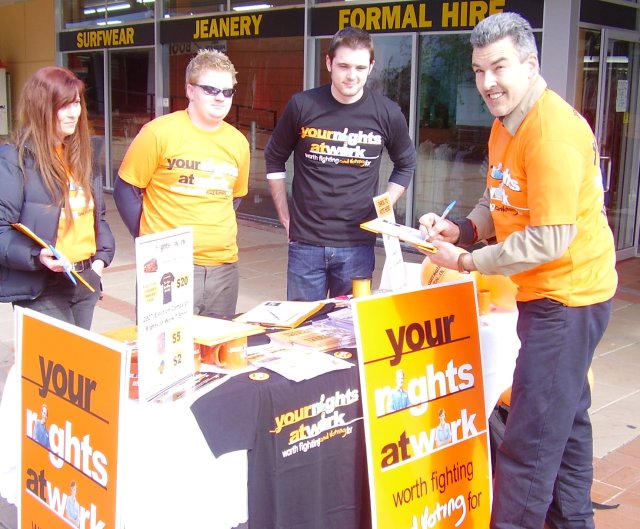
Former senator and Labor Party ALP national president Stephen Loosely observed that in the lead-up to the 2007 federal election the Howard government’s unfair work laws — known disingenuously as Work Choices — could not have withstood unionism’s industrial response had the previous Liberal prime minister Malcolm Fraser tried to introduce them.
But by 2006, an industrial campaign was beyond their capacity, a fact that was equally recognised by the unions.
In the two years preceding the 2007 election, the ACTU ran what was effectively an election campaign for Labor.
According to reported Australian electoral commission figures, it came at a cost of more than $60 million in direct and indirect support.
An analysis of the Australian Electoral Study conducted after the 2007 poll showed just how successful the campaign was — industrial relations, together with climate change, were the biggest vote-changing issues that returned the Labor Party to government.
The union campaign was based on the human rights principles of freedom of association, the right to organise and the right to strike that form the basis of the International Labour Organisation (ILO) conventions that were breached by Work Choices.
For all their efforts in getting the Labor elected, what the unions got in place of Work Choices was the equally disingenuous Fair Work Act, which replicated provisions already found to have breached ILO Conventions.
About half of the members of the Labor government responsible for this legislative sleight of hand came from the union movement. They included three past presidents of the ACTU, the previous secretary and assistant secretary of the ACTU and the ex-national secretaries of two of Australia’s largest and most influential unions, the Australian Workers Union and the Australian Manufacturing Workers Union.
Some of them vigorously campaigned against Work Choices. All of them voted for the unfair provisions of the Fair Work Act.
The ACTU responded to this in the 2010 election with yet another mass media campaign – one that was directed at the unions own membership as much as it was to the vast majority of the workforce they were unable to organise.
At the 2007 election, the costliest media campaign ever launched by the union movement resulted in 63% of unionists voting Labor, the highest level for several elections. This left 37% of members not persuaded by their self-funded advertisements to vote for the ALP.
They included 26% who voted for the coalition and 8% who voted for the Greens.
The neoliberalism that unites both Labor and the Coalition has no place for the Laborist tenet of “strong unionism” that was a key feature of Australia’s political landscape until the early 1990s.
As David Harvey points out in his Brief History of Neoliberalism, confronting trade union power and attacking all forms of social solidarity that hinders “competitive flexibility” is central to the project.
Yet as the 2010 union media campaign unfolded, some unions were taking a novel approach to membership renewal that was a mirror image of an employers’ practice that they consistently criticised — outsourcing.
Three unions with coverage in the public sector paid a private company $500 a head to sign-up new members. The company was established by an ex-Labor activist who formerly worked for a Labor senator from the union movement.
The outsourced recruiters were employed on common law contracts as opposed to a collective agreement that those recruited would be urged to fight for. Early last year the recruitment company was placed in liquidation owing its workers more than $1 million in unpaid wages and other entitlements.
This year there is another TV media campaign from the ACTU that focuses on how bad the election of an Abbott-led Coalition would be for unionists while carefully avoiding the shortcomings of Labor.
An Abbott victory would undoubtedly be a bad result for unions. His promised Royal Commission into unions would test the assertion that the unseemly imbroglio in the Health Services Union was but an example of a “rotten apple” in an otherwise uncontaminated barrel.
The more pertinent point is what would a Kevin Rudd victory mean? The “class war” that he has never believed in has been going on for some decades now — waged by employers against workers with the assistance of legislative fetters on legitimate union activity.
There seems to be the very real prospect that a Rudd victory would lead to industrial relations bargaining laws being further worsened.